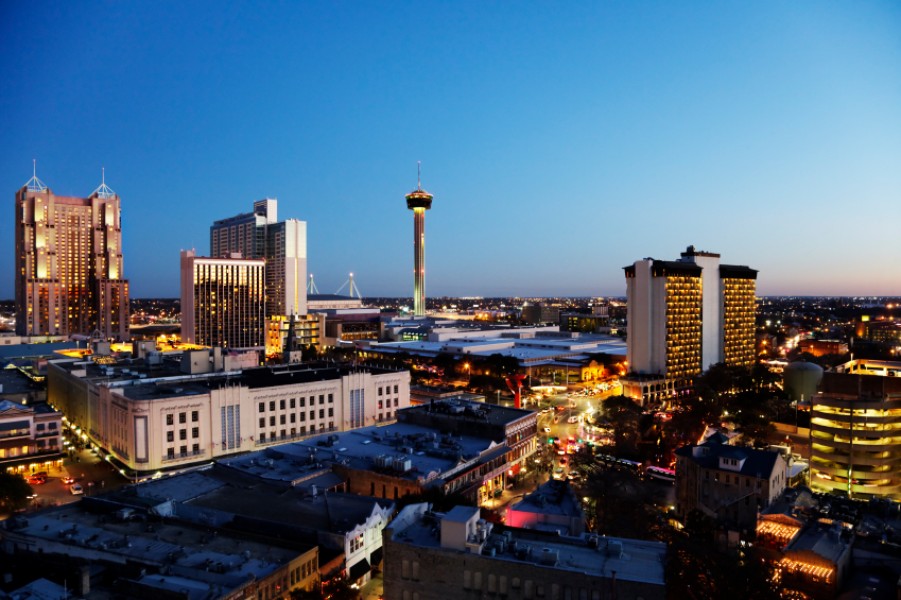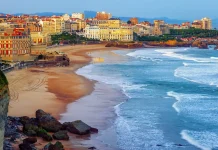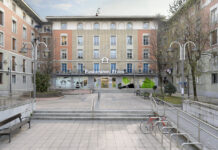This article was translated by Joseba Varela
Iñigo Arzac has visited Euskadi. Judging by his name and surname, it seems obvious that he has Basque origins. He was born in Durango, but the Mexican Durango, not the one in Biscay, and now lives in San Antonio (Texas, USA). He was named as one of the youths with a greater positive impact and influence in the city’s local community by the San Antonio Business Journal in November 2011 (the automatically translated article can be found here), as echoed in the Spanish-language newspaper el Universal de San Antonio.

Whilst it seems that his family’s main roots can be traced to the Basque Country, as can be deduced from the text that has led to this post in our website, they haven’t kept an intense nor direct relationship with this part of their past. That’s the reason why we find quite satisfactory the fact that he has visited us and that he’s done so thanks to a programme of the German Marshall Fund, of whose visits to Euskadi we have already made references to.
His reflection on what he was witnessed here is worth reading. Even more so because his is a very pure glance, not contaminated by preconceptions or pre-assumptions. A glance and a reflection coming from a successful professional with a global vision of reality.
We can’t deny it. We’ve liked it very much. We are very pleased by his ability to unite past and present through the enduring will of the Basque people of ruling their own destiny. We are enthused by his reference to John Adams (Second president of the USA and one of its Founding Fathers) and to the chapter devoted to the Basques in the book he wrote, A defence of the constitutions of government of the United States of America, which we have often discussed and which we consider of utmost importance. We are also delighted by his opinion on the work of the Basque institutions: They have focused on identity, innovation and sustainable human development, with spectacular results.
In other words, we have thoroughly enjoyed it. But we are particularly fond of the work that the German Marshall Fund is carrying out, so that’s why we recall a comment we made in a previous post devoted to the testimony of a visitor who had come to our country thanks to this Fund:
One last reflection aimed at those within the institutions that are responsible of this programme: The visits of the young people that come to our country through the US German Marshall Fund can lead to a fundamentally positive positioning of the Basque Country among the political or opinion-leaders of the decades to come. Accordingly, they should strive to maintain and, if possible, increase them.
To finish with, we want to send a special and personal message to Iñigo Arzac. Thank you for visiting us, thank you for having written what you have written, but, above all, we want to convey a message that is essential.
You are one of the Basques around the World, a Basque of the diaspora, just like many Basques spread throughout the planet, who only has to desire to be part of our reality in order to be one of us. Moreover, us Basques need you, as we need each one of the Basque descendants who live in all the corners of the globe. We are a small community and we can’t afford to lose a single one of us. We therefore include this entry in the Basques around the World section.
For all those reasons, Welcome home.
By the way, we take it as a given that he is of Basque ancestry, but if he weren’t, he’s equally welcome. In that case, we would already consider him a Friend of the Basques.
GMFUS – 5/4/2013 – USA
The Secret to Success: Strong Culture and an Autonomous Local Government
This past March 21st I called my father from Bilbao, Spain to wish him a happy birthday while I am in Europe as part of the Marshall Memorial Fellowship. I excitedly told him how impressed I was with the city’s architecture and its prosperity compared to the rest of Spain and many parts of Europe. He was very happy to receive the call. He also told me that around 25 years ago he had visited Bilbao and back then it was a dark city in the middle of an economic crisis with industrial parks and a dirty river at its heart instead of world renowned museums. How did Bilbao and the Basque Country as a whole go from crisis to model city in two decades?
(Continue) (Automatic translation)
Last Updated on Dec 20, 2020 by About Basque Country





